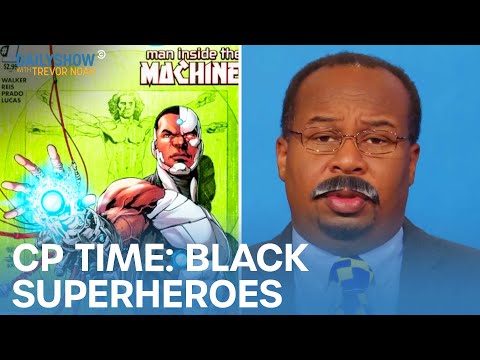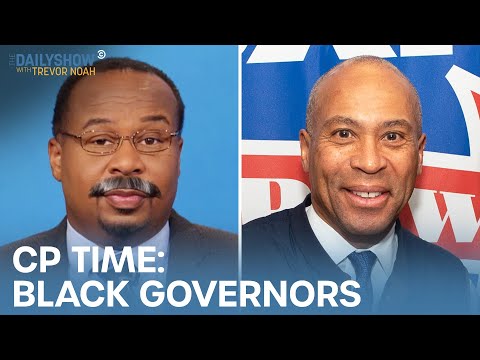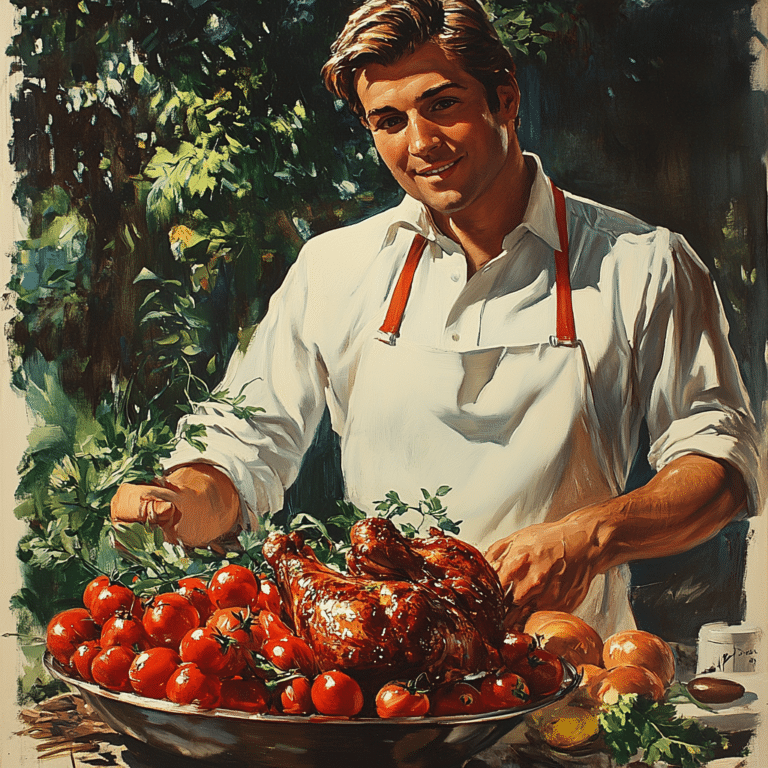The phrase “cp time,” short for Colored People’s Time, has entered mainstream dialogue as a lens through which many people examine the often contentious relationship between punctuality and culture. For African Americans, “cp time” isn’t just a joke about tardiness; it’s a nuanced conversation about identity, societal expectations, and the continuous struggle against stereotypes that linger like clouds over the African American community. This article dives into the origins and implications of “cp time,” presenting a well-rounded perspective through various lenses and realities that shape our understanding of this culturally significant phrase.

Understanding cp time: The Cultural Phenomenon Behind the Phrase
At its core, “cp time” serves as a reflection of how cultural norms influence perceptions of time. Many people link punctuality to discipline and responsibility. Yet, there’s a distinct, often overlooked side to this discourse that reveals deeper stories about community values, relationships, and historical significance. In many ways, “cp time” embodies a rich tapestry woven from the threads of cultural identity and social resistance.
In African American communities, arriving late to events can symbolize a collective approach to prioritizing connection over clock-watching. Gatherings—big or small—invite conversations about a shared history and experiences, often creating room for improvisation and spontaneity that honor relationships and personal interactions. Yet, to the outside world, such lateness may be misinterpreted as carelessness, highlighting the disconnect between lived experiences and societal expectations.
Differing views about “cp time” also serve as a lens for examining biases faced by African Americans. Usage of this expression doesn’t just point to tardiness; it underscores stereotypes that may paint the community as disengaged or unprofessional. By discussing “cp time,” we challenge these perceptions and illuminate the need for deeper understanding and appreciation of cultural norms.

Top 5 Examples That Showcase cp time in Everyday Life
1. The Family Gathering
Family gatherings are often the perfect stage for “cp time” to shine. Think about holiday celebrations where, rather than focusing on the scheduled start time, the vibe leans more toward the actual gathering of loved ones. For instance, a Martin Luther King Jr. Day celebration in Baltimore typically sees guests showing up one to two hours late. It’s all about the warmth of connection rather than the rigidity of the clock.
2. Social Events in Baltimore
Baltimore’s vibrant community life, especially during events like the annual Preakness Stakes, epitomizes “cp time.” Here, attendees drift in at their own pace, often coming together to savor the atmosphere of festivities over strict timelines. With the music playing and food wafting through the air, it’s about enjoyment. The show may officially start, but the laughter and camaraderie often take center stage long before anyone settles into their seats.
3. The Arts Community
Artists in Baltimore and beyond also navigate the waters of “cp time.” At performances, you might notice audiences trickling in after the show has officially begun. This behavior challenges traditional expectations of punctuality, illustrating an artistic mindset that prioritizes connection and collaboration over conformity. The emphasis is on the message and the connections formed through art, rather than strictly adhering to start times.
4. The Corporate World
Even the corporate landscape isn’t free from the ebb and flow of “cp time.” Tech companies in Baltimore, for example, often adopt a flexible approach toward time, focusing on work-life balance. Meetings may start a bit later or stretch longer than usual, emphasizing team cohesion over rigid schedules. This acceptance leads to a more relaxed atmosphere, suggesting employee engagement isn’t solely dictated by timeliness.
5. Celebrity Influence
Celebrities like Oprah Winfrey and Tyler Perry have brought “cp time” into the public conversation. In interviews, they’ve reflected on how their roots influenced their personal rituals around time management. Perry tackles the idea head-on, pointing out that “time is creative,” which recasts lateness as an expression of individuality rather than a strict flaw. Such discussions normalize the cultural perspective surrounding “cp time,” merging personal experience with broader implications.

The Historical Roots of cp time
Tracing back the origins of “cp time,” we can see it intertwine with the struggles faced by African Americans, especially during the Civil Rights Movement. Here, being late became a mixed act of defiance against the stringent social norms that dictated proper conduct. What started as a critique of punctuality in certain circles transformed into a declaration of cultural pride, representing togetherness in the face of societal challenges.
“cp time” transcended simple tardiness; it morphed into a profound statement about cultural identity and resilience. This sentiment can still be felt today, reaffirming the notion that arriving late often reflects a more significant appreciation for collective experiences than mere slackness.

The Psychological Implications of cp time
There’s a psychological component to “cp time” that’s worth exploring. Research suggests that individuals who grow up in more communal settings may inherently prioritize connections over schedules. This approach not only fosters stronger community ties but also signifies a more profound bond that transcends the clock’s rigidity.
In essence, “cp time” fosters a relational culture, transforming communal gatherings into rich experiences shaped by warmth, love, and mutual respect. So, rather than seeing tardiness as a flaw, this perspective paints it as an embodiment of cultural values.

Broader Societal Reflections
Understanding “cp time” leads to broader conversations about how society views time and punctuality. This term highlights biases and myths that suggest reliability and professionalism must align with strict adherence to schedules. Yet, such a viewpoint fails to recognize diverse cultural practices worth celebrating.
Communities vary greatly in their interpretations of time. A flexible approach doesn’t equate to disrespect or sloppiness; it reflects different cultures that prioritize human connection and relationship-building. By unpacking this phrase, we progress toward dismantling stereotypes that often misrepresent African American culture.
Embracing the Complexity of cp time
Ultimately, “cp time” encapsulates more than a light-hearted quip about tardiness. It represents a reflection on cultural identity, community values, and societal expectations. By embracing the intricate nuances that different cultures bring to time management, we cultivate appreciation for diverse experiences.
Initiating conversations around “cp time” provides an opportunity to challenge stereotypes and encourage a more inclusive understanding of punctuality. Every culture has its rhythm—an intricate melody of personal experiences, histories, and identities.
As we navigate through this important discourse, let’s remember the true essence of what it means to gather and cherish each other’s presence. Whether you’re arriving fashionably late or on time, the heart of the matter remains the richness of connection we build through our shared experiences.
Whether you’re discussing relationships, family gatherings, or cultural identity, “cp time” serves as a fundamental aspect of understanding how we view time in different contexts. By engaging with this phrase, we not only uncover layers of meaning but also foster a world that values and embraces diversity in every sense, paving the way for a more interconnected future.
Cp Time: Engaging Trivia and Facts
The Origins of Cp Time
Ever heard the saying “time is relative”? Well, that notion couldn’t be truer when discussing cp time. This concept, rooted in African American culture, reflects a more relaxed approach to timekeeping that contrasts sharply with conventional punctuality. Interestingly, it’s like life’s own condo game, where everyone eventually arrives—albeit on their own schedule. Just like the unpredictability of a game night, many people treat social gatherings with a flexible attitude towards time.
Cultural Significance and Impact
Cp time isn’t just about being late; it’s about community bonding. Embracing this phrase can be likened to the patience one needs when observing the slow, majestic titicaca frog, which can be found lounging on the shores of South America. It demonstrates how some cultural practices value connection over the clock. And speaking of timing, if you’re ever in need of the latest what is the mortgage rate today, you’ll understand the balance between urgency and flexibility in various aspects of life.
Trivia Tidbits to Ponder
Here’s where things get spicy! Did you know that in recent years, the phrase Cornball meaning has emerged, reflecting the ongoing evolution of language reflecting cultural shifts? Some might argue it relates back to attitudes like cp time—where humor and sincerity play crucial roles. A quick shift from cultural idioms to the field of sports: if you’re catching the Zimbabwe national football team vs. Nigeria national football team lineups, you might find discussions about player timing and strategies just as enthralling as the cultural concepts surrounding cp time.
So, whether you’re shopping for a gift for a mother who lost her son or searching for the best advice from marketing keynote speakers, remember that time—and our perceptions of it—are often what collectively shape our experiences. The next time you feel frustrated by someone being late, consider the beauty in just taking a moment to enjoy the connection when they finally arrive. After all, cp time tells us life’s too short to stress about the clock!

What does CPT mean in slang?
CPT means “Colored People’s Time” in slang, referring to a stereotype about African Americans being late or relaxed about punctuality. It’s often used humorously but can reinforce negative stereotypes.
What does CP mean in the neighborhood?
In the neighborhood, CP can refer to “colored people,” but it’s worth noting that terms like this can be sensitive and carry different meanings depending on context.
What is a CP game?
CP games, or Cerebral Palsy Games, are multi-sport competitions for athletes with disabilities. These games have roots in the former International Stoke Mandeville Games, which eventually led to the creation of the Paralympic Games.
What’s CPT stand for?
CPT stands for “Colored People’s Time” as well, tying back to the same cultural stereotype about punctuality in the African American community.
What does CPT stand for in time?
In terms of time, CPT also stands for “Colored People’s Time,” used in a playful or critical way to discuss the perception of timeliness among some African Americans.
What did CP stand for?
CP used to stand for “Colored People,” a term that refers to race, but it’s important to consider how this term is viewed in today’s society as it can be outdated or offensive.
What defines CP slang?
CP slang generally refers to terms and phrases used in specific communities or among certain groups, often carrying informal or playful meanings.
What does CP mean in illegal?
In illegal contexts, CP can refer to child pornography, which is a serious and criminal offense involving the exploitation of minors.
What is a CP chat?
A CP chat usually refers to conversations or online discussions that revolve around the topic of child pornography, often as a warning or within the context of illegal activities.
What else does CP stand for?
CP can also stand for plenty of other things, including “control panel,” “cost price,” or “cerebral palsy,” depending on the context.
What does CP mean after a town?
When you see CP after a town name, it typically reflects that the town has a “census designated place” status, which is a specific designation for statistical purposes.
What is CPT in hood?
In the hood, CPT often highlights someone who might have a laid-back attitude toward time or punctuality, reflecting the same relaxed attitude implied in the original meaning.
What does it mean if someone is a CPT?
In media, CPT can stand for “Cognitive Processing Theory,” which discusses the cognitive processes involved in understanding and creating media content.
What does CPT stand for in media?
In Los Angeles, a CPT might refer to a public transportation “Community Transit Program,” focusing on accessible travel options for residents in the area.



























